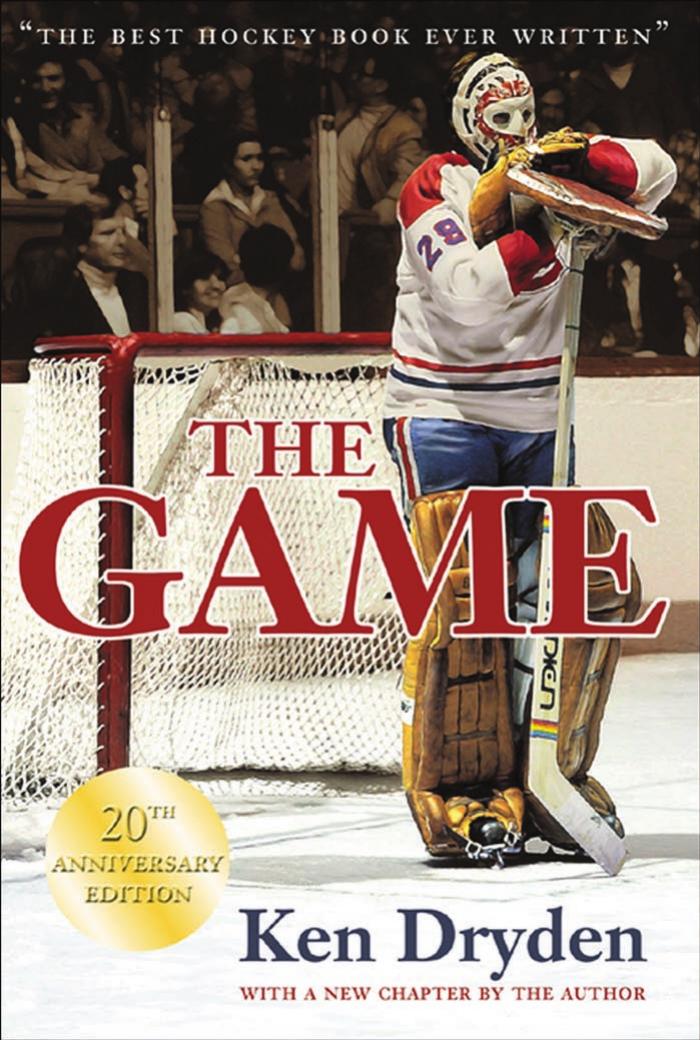The Game by Ken Dryden

Author:Ken Dryden
Language: eng
Format: epub, mobi, pdf
Publisher: John Wiley & Sons, Ltd.
Published: 2010-05-10T16:00:00+00:00
There is a sense of destiny about Lafleur that is present only in a great player, and Lafleur has been a great player most of his life. A national figure at ten as star of the Quebec pee-wee tournament, moving up to Jr. A at fourteen, he amassed unprecedented scoring totals with the Remparts, and by seventeen was the kind of unmistakable star that a team will plan for and scheme for years ahead if it can. In May 1970, with two lower draft picks already acquired from other teams, the Canadiens traded Ernie Hicke and their first-round pick to the California Golden Seals for François Lacombe, cash and the Seals’ first pick in the 1971 draft. In a draft that included such prospects as Marcel Dionne and Rick Martin, the Canadiens, with the first pick, selected Lafleur.
It was a propitious moment. Days before, with a triumphant tenth Stanley Cup, Béliveau, captain, aging hero and idol to Lafleur, had played his last game, announcing his retirement some weeks later. The torch was passed, the line of pre-eminent French-Canadian superstars beginning with “the Rocket,” Maurice Richard, more than thirty-five years before would continue unbroken. For a poor boy from a small pulp-and-paper town on the Ottawa River, the world was unfolding as it should—destiny calculated, manipulated, controlled by others; destiny none the less.
Now, eight years later, it is in a sense no less evident. He is a dazzling star, the best of his sport, his team more dominant than any since the last years of the Rocket. Wealthy, celebrated, emerging off-ice as a poised if not wholly polished public person, he has years of success ahead of him. Béliveau, the institutional embodiment of the team now elegantly blue-suited in upstairs offices, will eventually retire; Lafleur will retire and replace him, the torch will pass again.
It is an old story, now a rare one, confined mostly to the pages of adolescent fiction: a player, a team, and his sport. But now, with free-agentry to tempt him away, a player’s loyalty and self-interest divide, then collide, the rift wider, the collision more destructive, self-interest the winner at an ever younger age. Still, Lafleur seems untouched. No well-placed tattoos, no self-promoting blood of Canadiens’ bleu, blanc, et rouge coursing in his veins, you can hear it in simple, uncoaxed words—“hockey’s my life,” he says often; too young to know, he knows, and no one argues. It’s a life immutable; not my life, not one I would want, still a life someone should live, pure, simple, romantic—after all, what’s wrong with adolescent fiction?
I have known Lafleur for nearly eight years. In that time, I have been to his home only once, for a team party; he has never been in mine. We have never been roommates on the road; we have never talked for more than a few coincidental moments at a stretch; only twice have events stripped away teammates and left us alone and together. In the playoffs three years ago, an RCMP informer told of threats he had overheard to kidnap Canadiens players, somehow interpreted as Lafleur and me.
Download
The Game by Ken Dryden.mobi
The Game by Ken Dryden.epub
The Game by Ken Dryden.pdf
This site does not store any files on its server. We only index and link to content provided by other sites. Please contact the content providers to delete copyright contents if any and email us, we'll remove relevant links or contents immediately.
The Game by Ken Dryden(1205)
The Lives of Conn Smythe by Kelly McParland(1098)
Total Hockey Training by Sean Skahan(1064)
Chris Chelios by Chris Chelios(1045)
Killer by Doug Gilmour(995)
Backyard Ice Rink by Joe Proulx(904)
Playing With Fire by Theoren Fleury(900)
Ice Capades by Sean Avery & Michael McKinley(865)
I Am Nobody: Confronting the Sexually Abusive Coach who Stole My Life by Greg Gilhooly(859)
The McDavid Effect by Marty Klinkenberg(859)
Against All Odds by P.J. Naworynski(842)
The Rise of the Pittsburgh Penguins 2009-2018 by Rick Buker(824)
Hockey Superstitions by Andrew Podnieks(819)
My Last Fight by Darren McCarty & Kevin Allen(807)
Born into It by Jay Baruchel(797)
The First Season by Bob Duff(787)
Hockey Dad by Bob Mckenzie(766)
How We Did It: The Subban Plan for Success in Hockey, School and Life by Karl Subban & Scott Colby(751)
Hockey Player for Life by Howard Shapiro(692)
